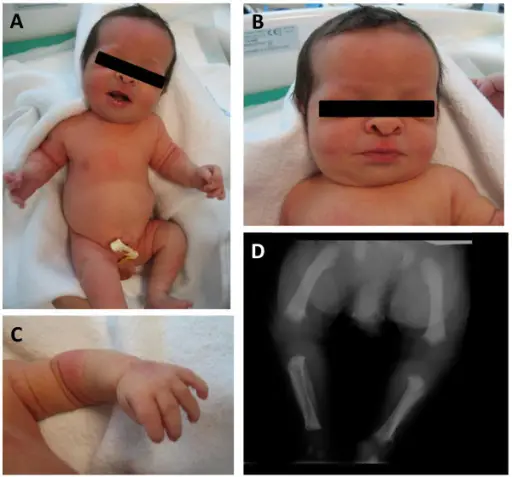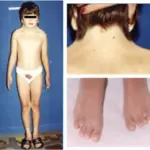Klinefelter syndrome is a group of chromosomal disorders in which there is at least one extra X chromosome compared with the normal 46,XY male karyotype.
What is the Pathology of Klinefelter Syndrome?
The pathology of Klinefelter syndrome is:
-Etiology: The cause of Klinefelter syndrome is retain of extra chromosome because of a nondisjunction event during paternal meiosis I, maternal meiosis I, or maternal meiosis II (gametogenesis). It is not an inherited condition. Maternal age is the only known risk factor. Women at 40 years have a four times higher risk for a child with Klinefelter syndrome than women aged 24 years.
-Genes involved: XXY.
-Pathogenesis: The sequence of events that lead to Klinefelter syndrome is congenital aneuploidy of the sex chromosomes.
How does Klinefelter Syndrome Present?
Patients with Klinefelter syndrome typically males present at puberty. The symptoms, features, and clinical findings associated with Klinefelter syndrome include infertility and small, poorly functioning testicles. Often, symptoms are subtle and subjects do not realize they are affected. Sometimes, symptoms are more evident and may include weaker muscles, greater height, poor motor coordination, less body hair, breast growth, and less interest in sex. Often, these symptoms are noticed only at puberty. Intelligence is usually normal, but reading difficulties and problems with speech are more common.
How is Klinefelter Syndrome Diagnosed?
Klinefelter syndrome is diagnosed by thorough physical examination. Testicular volume is measured by ultrasound examination, which usually also shows testicular hypoechogenicity. Smear testing can be used to look for Barr bodies in the buccal epithelium, corresponding to the inactive supernumerary X chromosome. Diagnosis is finally confirmed cytogenetically, by karyotyping.
How is Klinefelter Syndrome Treated?
Klinefelter syndrome is treated with a number of treatments. Physical therapy, occupational therapy, speech and language therapy, counselling, and adjustments of teaching methods may be useful. Testosterone replacement may be used. About 50% of affected males have a chance of fathering children.
What is the Prognosis of Klinefelter Syndrome?
The prognosis of Klinefelter syndrome is good. People with the condition have a nearly normal life expectancy.



